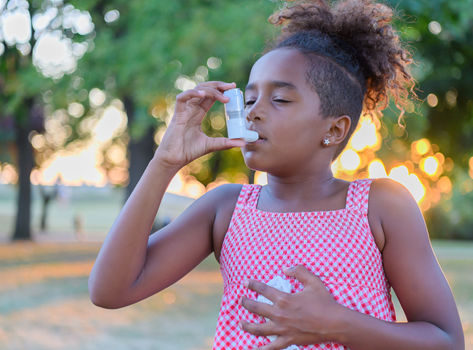
The approach of spring brings warmer weather, longer days and a refreshing change from the harsh cold of winter. However, for adults and children who struggle with seasonal allergies or asthma, the blooming trees and flowers can trigger bothersome symptoms that are difficult to control.
“Seasonal allergies and asthma are both inflammatory conditions. They can be triggered by genetics and environmental causes,” says Donatella Graffino, MD, allergy and immunology specialist at Atlantic Health System. “It’s important for people who have either condition to anticipate and manage their symptoms early. Once they start, it takes longer to get them under control.”
Seasonal allergy symptoms
Both adults and children are often diagnosed with allergies to triggers ranging from food and medications to pet dander and mold. Allergic rhinitis, or seasonal allergies, are the result of airborne triggers such as tree, grass and weed pollens. Dr. Graffino says that spring seasonal allergies can last from February through May or June.
Symptoms of seasonal allergies often include:
- Sneezing
- Congestion
- Itchy nose, throat or eyes
- Red and/or watery eyes
- Postnasal drip at night
Dr. Graffino says people who are very sensitive to birch pollen sometimes struggle with pollen food allergy syndrome, also known as oral allergy syndrome. The condition is triggered by the proteins in some raw fruits and vegetables that mimic pollen. Symptoms typically show up as an itchy or swollen mouth, throat or lips after eating foods such as hazelnuts or raw carrots, cherries and peaches.
Symptoms of asthma
Asthma is a condition that causes inflamed airways and difficulty breathing. It is most often triggered by exercise, cold air or substances in your environment at any time of the year. Asthma requires careful management with your primary care physician, allergist or pulmonologist.
The symptoms of asthma can range from mild to severe and can include:
- Chest tightness
- Shortness of breath
- Wheezing
- Dry coughing
“Many people with asthma also have seasonal allergies,” says Dr. Graffino. “Even without allergies, on high pollen count days people with asthma might notice they have more difficulty breathing or more severe symptoms.”
Treatment options
Walk through any pharmacy and you’ll see a range of treatments to combat seasonal allergy symptoms. Dr. Graffino says that most medications are now sold over the counter and there are many good options available. She recommends starting treatments for seasonal allergies one month before your symptoms typically begin. A nasal steroid, an antihistamine and eye drops typically provide the relief most people need.
If you find that your allergy symptoms are difficult to control, Dr. Graffino suggests making an appointment to see your allergist for more targeted testing and treatment options, such as allergy shots.
“Allergy testing requires some detective work. Your allergist will need to know your allergy history and symptoms, as well as information about your outdoor activities,” says Dr. Graffino. “Many people are disappointed to hear that there’s no magic test for your skin or blood that will provide a list of your allergies. It’s a very methodical process that takes time.”
Most people with asthma can safely manage their condition with their primary care doctor. Treatments include prescription inhalers that contain corticosteroids and bronchodilators. However, Dr. Graffino says that asthmatic patients should see an allergist or pulmonologist at least once a year for lung function testing. She adds that if you have trouble controlling your symptoms, use a rescue inhaler more than twice a week or require emergency care for breathing issues, you should see a specialist more often.
“Effectively treating your asthma and seasonal allergies can optimize your health and quality of life,” says Dr. Graffino. “There’s no reason to struggle when we have so many resources available to relieve your bothersome symptoms.”
Be Proactive About Your Health
To stay safe and healthy, it's good to have a primary care provider who knows and understands your health history and wellness goals.